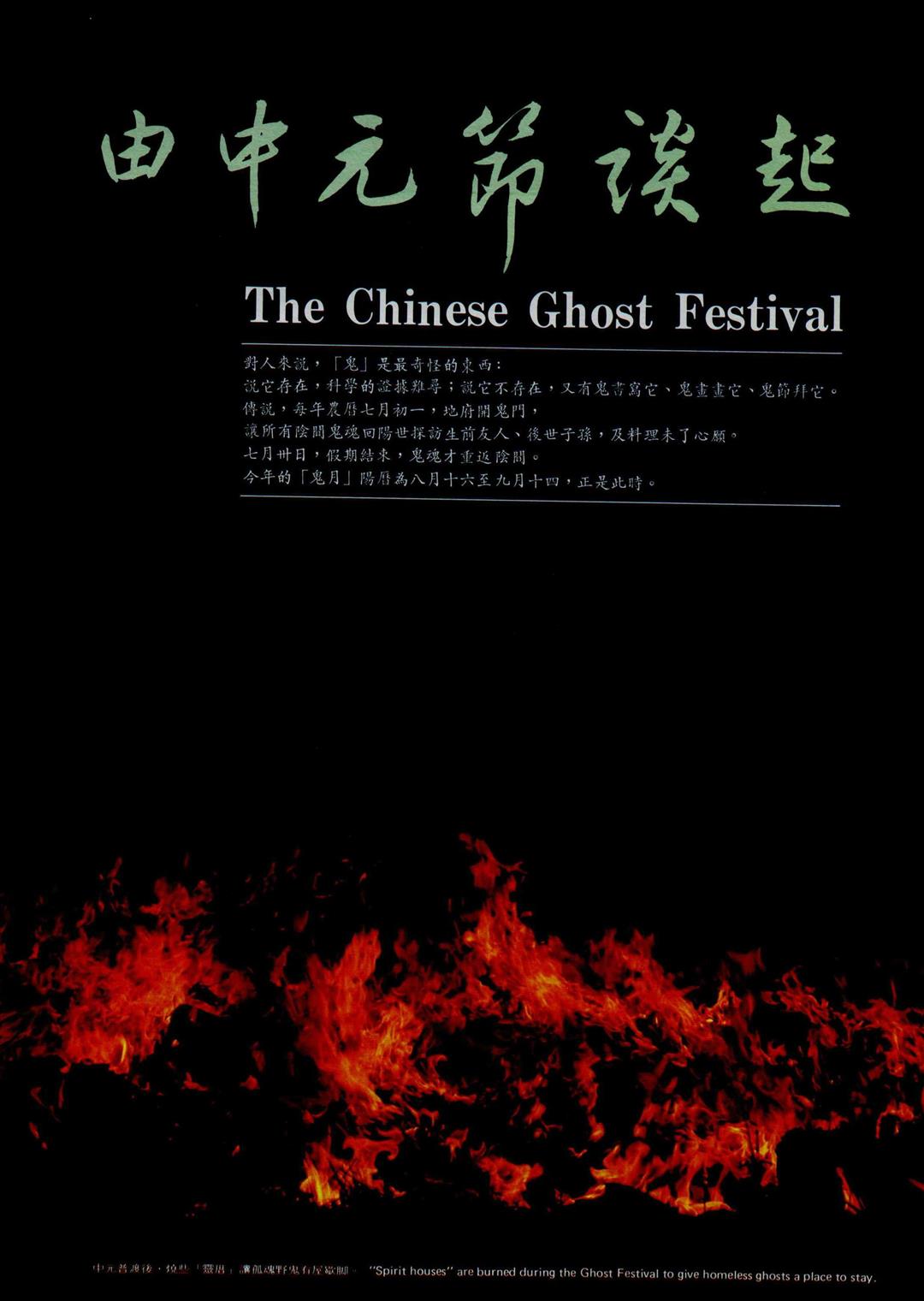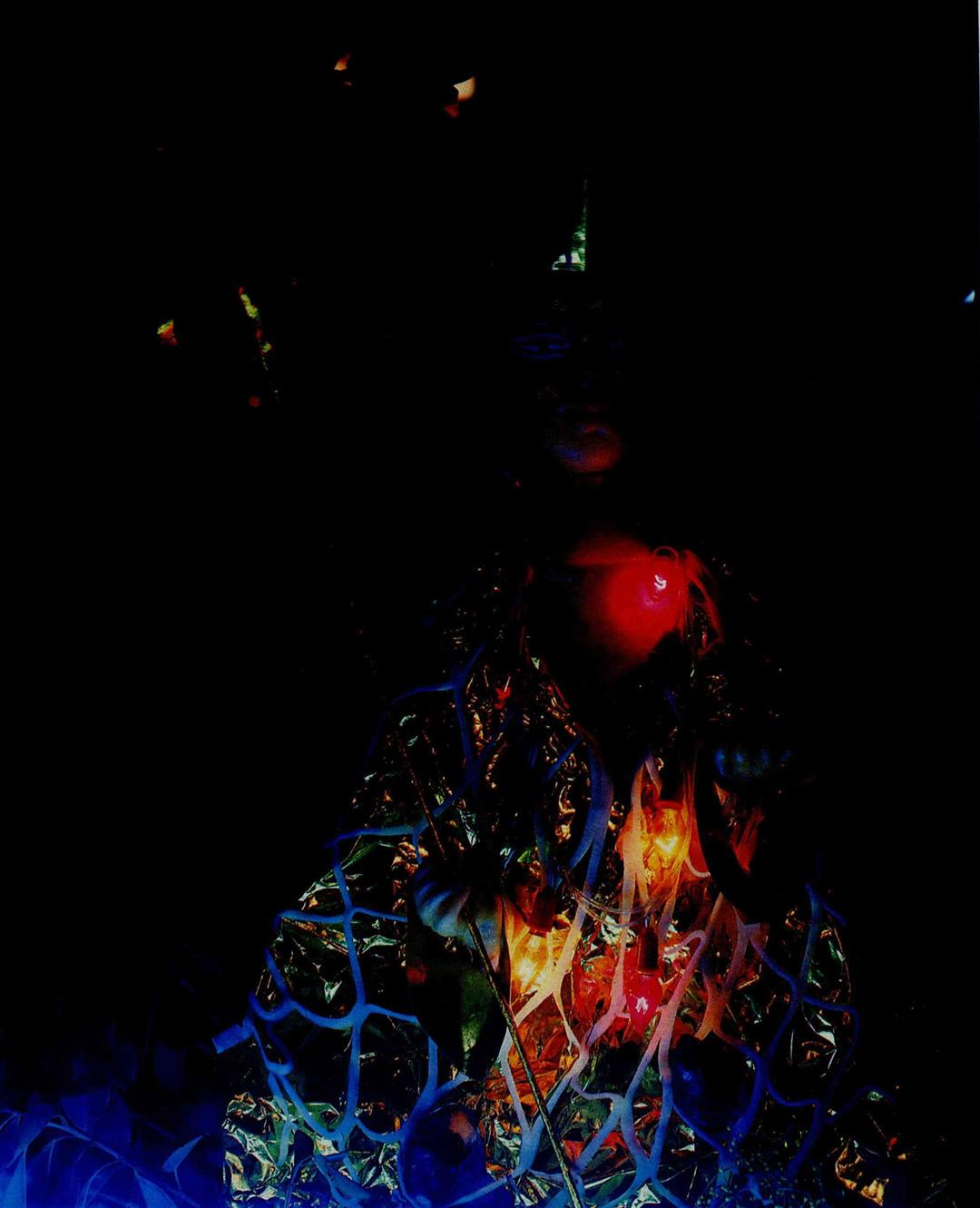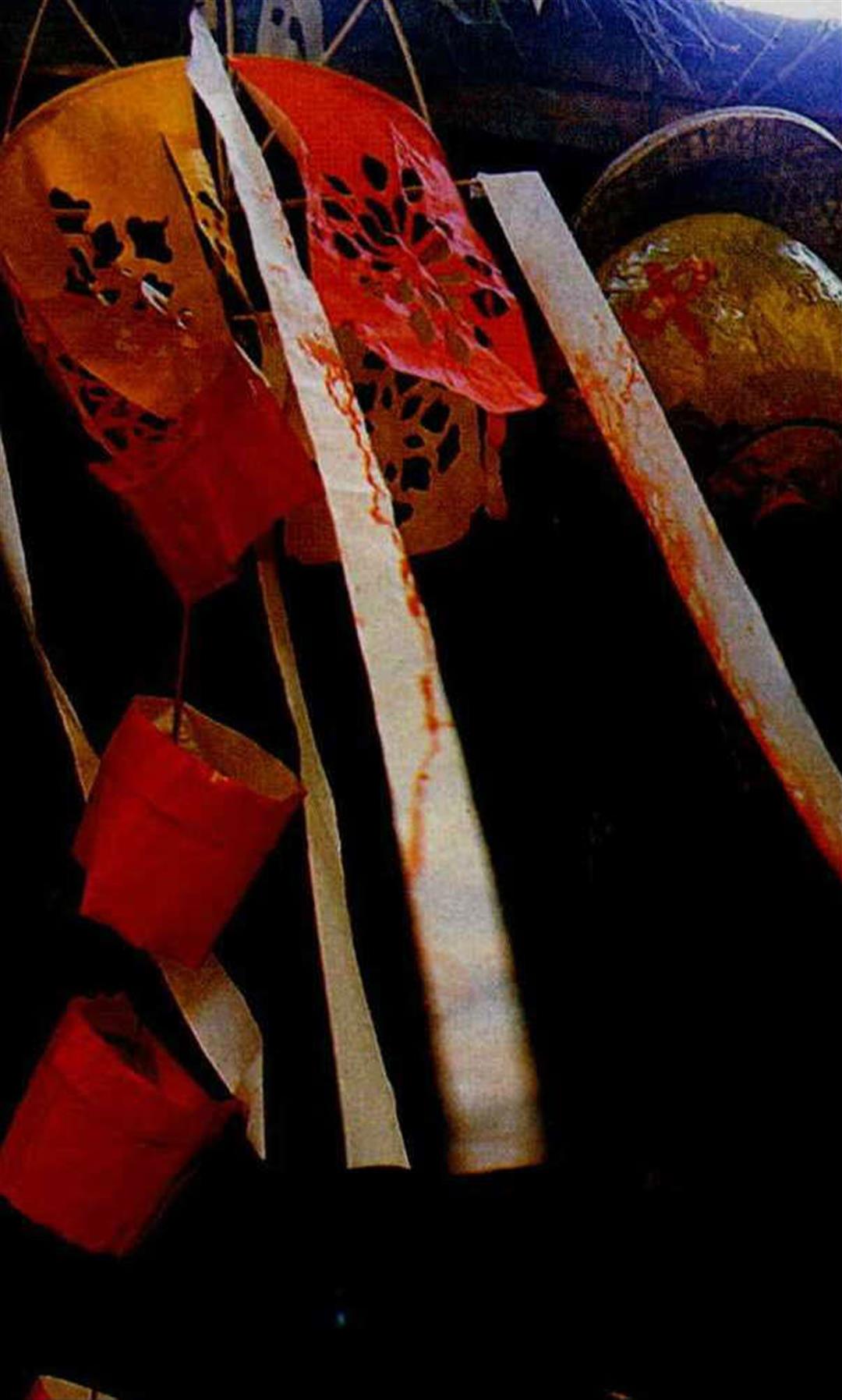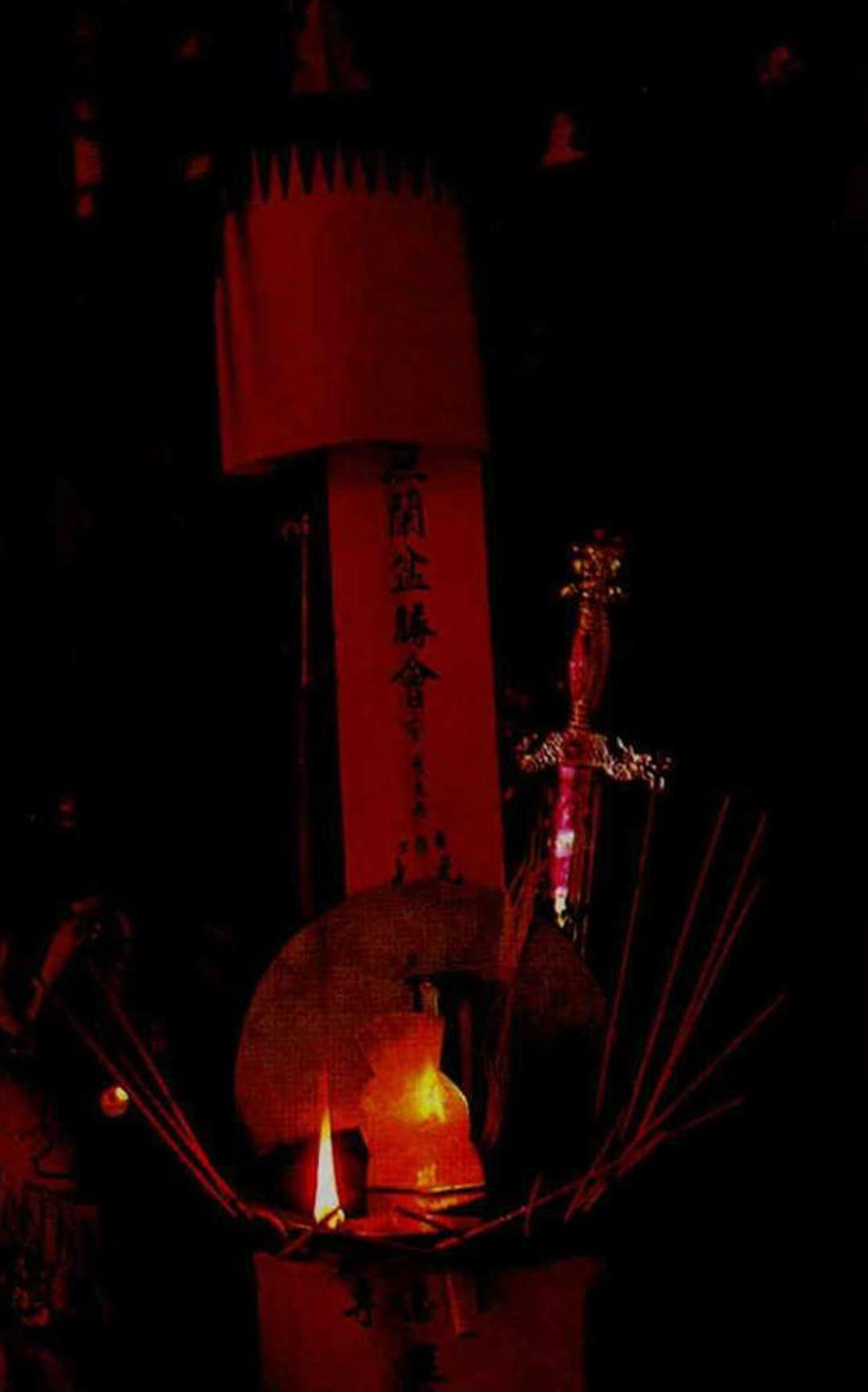
The Chinese Ghost Festival
On the first day of the seventh lunar month, according to Chinese tradition, the gates of the underworld are opened, allowing the spirits of darkness to return to the world of light, to visit their former friends, their families and their descendants and to take care of unfinished business. Not until the end of the lunar month, 30 days later, do the spirits return to the nether world. "Ghost Month" this year runs from August 16th to September 14th.
Chinese ghosts can be divided into many categories: water ghosts (of people who have drowned), fire ghosts (of people burned to death), headless ghosts (of those decapitated), hungry ghosts (of people who have starved to death) and even tiger swallowed ghosts (the appellation is self-explanatory).
According to the late 17th-century collection translated as Strange Stories from a Chinese Studio, ghosts also have many close relatives--animal, plant and mineral spirits; demons, sprites and goblins of the hills and streams--so many, in fact, that the distinction between monsters and ghosts eventually becomes a bit blurred.
Since most ghosts bear a certain degree of resentment toward the living, they are naturally up to little good. If they aren't playing tricks on people in the middle of the night, then they're changing into various shapes to give them a scare. But when people have had enough trouble from ghosts, they begin to think about ways of dealing with them.
China is fortunate in having a ghost to control ghosts. Chung K'uei of the T'ang dynasty (618-907 A.D.) came in first place in the preliminary civil service examinations. But he was so ugly that when he went to the imperial palace for the final exam, the court took fright and failed him. In a fit of desperation, he dashed his head against a pillar and killed himself.
Later, the emperor took sick and saw in a dream a little ghost, who had stolen the imperial consort's perfume bag and jade flute, being chased by a large ghost with bare arms. The big ghost caught the small one, plucked out his eyes and ate them. When questioned, the big ghost replied that he was Ch'ung K'uei, sworn to defend the throne against evil demons. The emperor thereupon recovered. From this incident arises Chung K'uei's reputation as a ghost-queller.
Besides Chung K'uei, ghosts are afraid of many other things, the Chinese believe, including precious swords, mirrors, the classical scriptures, red cloth, peach branches and even children's urine. If you meet a ghost outdoors, you should run into a nearby temple. If none is at hand, then coughing, singing, reciting the classics or chanting "The Song of Righteousness" will help. Old folks say "one leg-hair controls three ghosts" so it's not a good idea to shave your legs.
Of course, not all ghosts are necessarily bad. It was said of P'u Sung-ling, author of Strange Stories, that, "He hates talking to people but loves chanting poems with ghosts from desolate graves." Strange Stories includes many examples of clever, affectionate and even virtuous ghosts.
Since ghosts come in both hateful and loveable varieties, besides fearing them and seeking to drive them away, men also try to comfort and console them. The largest of these occasions to propitiate the spirit world is the Ghost Festival, celebrated on the fifteenth day of the seventh lunar month.
On this day, a large religious ceremony is held in Buddhist and Taoist temples specially to care for homeless, wandering spirits, which the Chinese call "good brothers" or "old grandpas". Lanterns are set up on high bamboo poles to guide the ghosts to the temples and are floated on the water to rescue the spirits of the drowned, otherwise condemned to their watery prisons until they can find a substitute victim to take their place.
Sacrificial offerings in the temples are abundant (the number of portions is "spiritually" increased by prayer) to ensure that there is plenty to go around--if the ghosts should quarrel, who would suffer but the living? But to make sure that the ghosts don't try to hang around too long after they've dined, paper images of local deities are burned to act as otherworldly M.P.'s and escort away the lingering.
Besides the Ghost Festival, offerings to wandering ghosts are made on the first and fifteenth of every lunar month. (Businesses observe the custom a day later.) And if there's an accident in the family that is attributed to ghostly activity, people will customarily set out some food by the side of the road to propitiate the spirits. Ghosts cared for in this way will scarcely be inclined to harm people.
That ghosts have their "human" side, too, is confirmed in a rather wide-spread folk tune called "The Ghost Song": In the road ahead there comes a ghost; His hair is long, his face is grey. "Ah--who--ah--who--ah--who are you? Why don't you have any eyes or legs?" The ghost at there words dropped a tear; His ashen face grew yet more pale. "Ah--I--ah--I--ah--I'm a ghost.
I want you to comfort and talk with me." Meeting a ghost like this, who could be so hardhearted as not to offer up a stick of incense in his behalf?
(Peter Eberly)
[Picture Caption]
"Spirit houses" are burned during the Ghost Festival to give homeless ghosts a place to stay.
Temple offerings are lavish to ensure that the "good brothers" all get their fill of goodies and go away happy.
Am I really that ugly?
Tripitaka, the 8th century Chinese monk who went to India to fetch Buddhist scriptures, makes an appearance at the ceremonies.
Lanterns hung on high light wandering ghosts the way.
Burning more incense, it is hoped, will make it a little easier for the "good brothers" to get by.

Temple offerings are lavish to ensure that the "good brothers" all get their fill of goodies and go away happy.

Tripitaka, the 8th century Chinese monk who went to India to fetch Buddhist scriptures, makes an appearance at the ceremonies.

Burning more incense, it is hoped, will make it a little easier for the "good brothers" to get by.

Lanterns hung on high light wandering ghosts the way.




@List.jpg?w=522&h=410&mode=crop&format=webp&quality=80)


